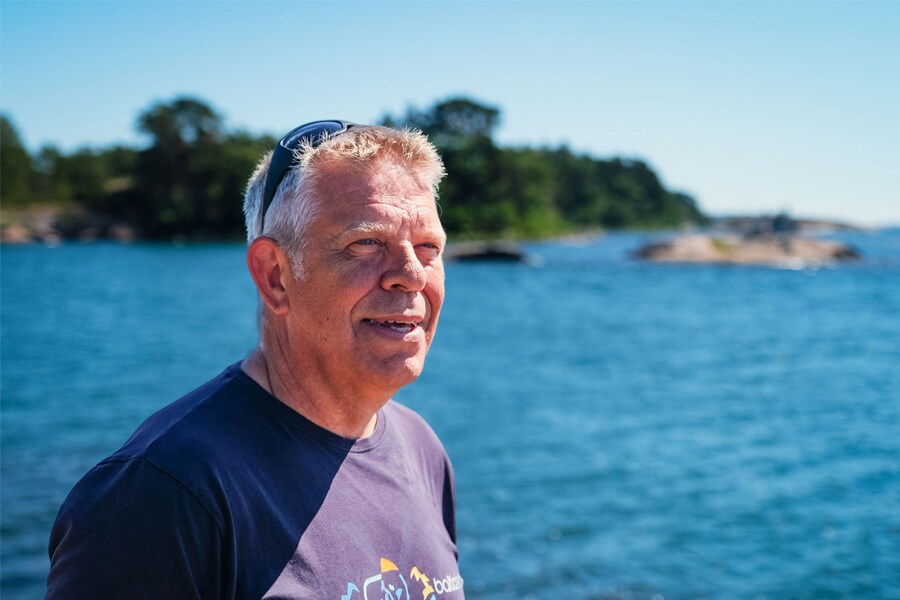
Warming Baltic Sea: Red flag for global oceans
The Baltic Sea—connected to the Atlantic by the straits of Denmark, and surrounded by Germany, Poland, Finland, Sweden and the Baltic states—has warmed at twice the pace of global oceans generally
 Alf Norkko, marine ecologist and professor leading the largest marine research station in the Baltic Sea Tvarminne Zoological Station (TZS), poses in Hanko, Finland.
Image: Alessandro Rampazzo / AFP©
Alf Norkko, marine ecologist and professor leading the largest marine research station in the Baltic Sea Tvarminne Zoological Station (TZS), poses in Hanko, Finland.
Image: Alessandro Rampazzo / AFP©
Climate change combined with pollution from farming and forestry could flip northern Europe's Baltic Sea from being a sponge for CO2 to a source of the planet-warming gas, scientists studying told AFP.
This should be a red flag, they warned, noting that other coastal marine zones around the world are trending in the same direction.
"We are at the forefront of these changes," said University of Helsinki professor Alf Norkko.
The Baltic Sea—connected to the Atlantic by the straights of Denmark, and surrounded by Germany, Poland, Finland, Sweden and the Baltic states—has warmed at twice the pace of global oceans generally.
Its relatively shallow waters are extremely sensitive to changes in the environment and climate.

















